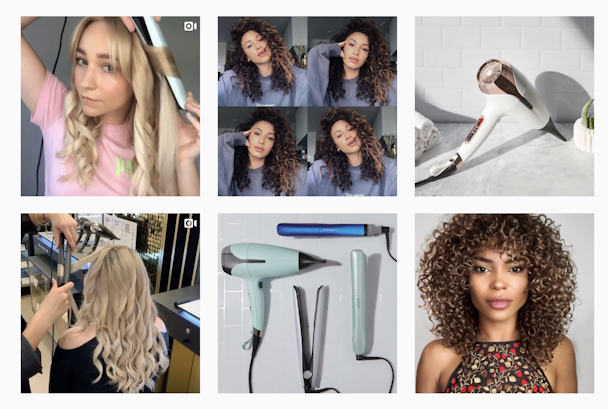What beauty CMOs really think of influencers, featuring GHD, Ciaté and Cult
Despite efforts to clean up influencer marketing, it still polarises opinion as people struggle to distinguish fact from paid-for fiction. Beauty marketers are also divided, as we find out when we catch up with GHD, Ciaté and Cult.

Has beauty influencer marketing entered a new era of honest co-collaboration?
For decades, the beauty industry thought product demonstrations had to happen face-to-face, carried out by a rep on a department store floor or by sales people travelling door-to-door. Then came the influencer.
Digital-first beauty brands saw the value in their lines being showcased online through beauty tutorials and product reviews that compelled fans to make purchases. Now, you’d be hard pushed to name a beauty brand that doesn’t have an influencer on hand.
While there are ample advantages, there are also issues – such as fake followers and failures to declare when something is paid-for, all of which cast doubt on its legitimacy as a marketing tool. And while bodies like the Advertising Standard Authority (ASA) have attempted to clean the sector up, just last month the ad watchdog announced that one of every four complaints about online advertising in 2019 took issue with sponsored influencer posts.
“I literally can’t wait for the bubble to burst,” says Nora Zukauskaite, global head of marketing at nail polish and makeup brand Ciaté London. “Influencers post a different product each day, ’my favourite this..., my favourite that...’ But who are they actually influencing? Surely no one, as everyone can see what’s happening?”
Responsibility for the current state of influencer marketing lies with marketers themselves says Zukauskaite as she calls them out for ”nourishing the environment at the beginning” and ”paying whatever was required to get the brand out there”.
”It’s really time for brands to raise their voice and say: ’How can we justify paying someone £50,000 for a YouTube video that is not genuine that you can see so solidly as a transactional action?’” she contends. ”It just cannot carry on this way.”
Montse Passolas, the global chief marketing officer at Coty-owned hair care product maker GHD, doesn’t quite agree. “The incredible thing that influencers do is they showcase our product – it’s a new business model and we’re adapting to it,” she says – before adding the caveat, “as long as those influencers have relevance and affinity with the brand.“
“We used to buy space on TV or in a magazine. Now we work with these great, enthusiastic content creators who add a personal touch to our brand.”
There appears to be an understanding that influencers aren’t all bad, just as long as they are in a position to be passing judgment and that the relationship with a brand isn’t just a straight-up transaction. Cat Turner, global chief creative officer and co-founder of the creative agency Cult, agrees and argues that ”inauthentic, paid-for ads are not effective” but that ”authentic, creator-based content from key opinion leaders” is incredibly effective.
While the beauty market has always dabbled in fabrication (brands having long been guilty of digitally retouching models so the skin surrounding their illogically thick eyelashes is beyond perfect) people are now desperate for them to get real and no one wants to see a brand paying an influencer to lie about its products.
“When we talk about content co-creation or working with a network to demonstrate the product with an honest review, that remains effective as it will happen whether brands pay for it or not,“ Turner explains. “There is no way they can escape the scrutiny of influencers.“
Pointing to beauty brands that have collaborated successfully with influencers – such as Becca’s collab with makeup influencer Jaclyn Hill, the Anastasia Beverly Hills work with Instagramer Amrezy or when Tarte Cosmetics partnered with YouTuber Hannah Meloche – she says the reason they work is because “not only are you getting big content out of them, you’re creating a big community and then creating new product at the other side.“
Zukauskaite, Passolas and Turner spoke with The Drum’s Sonoo Singh as part of our Can-Do Festival, an online event celebrating the positive energy, innovation and creative thinking that can make the marketing community such a powerful force for good.
Content created with:

CULT
Cult's ideas and insight take some of the world’s biggest beauty, fashion, luxury and wellness brands beyond their comfort zone to drive tangible business value....
Find out more
